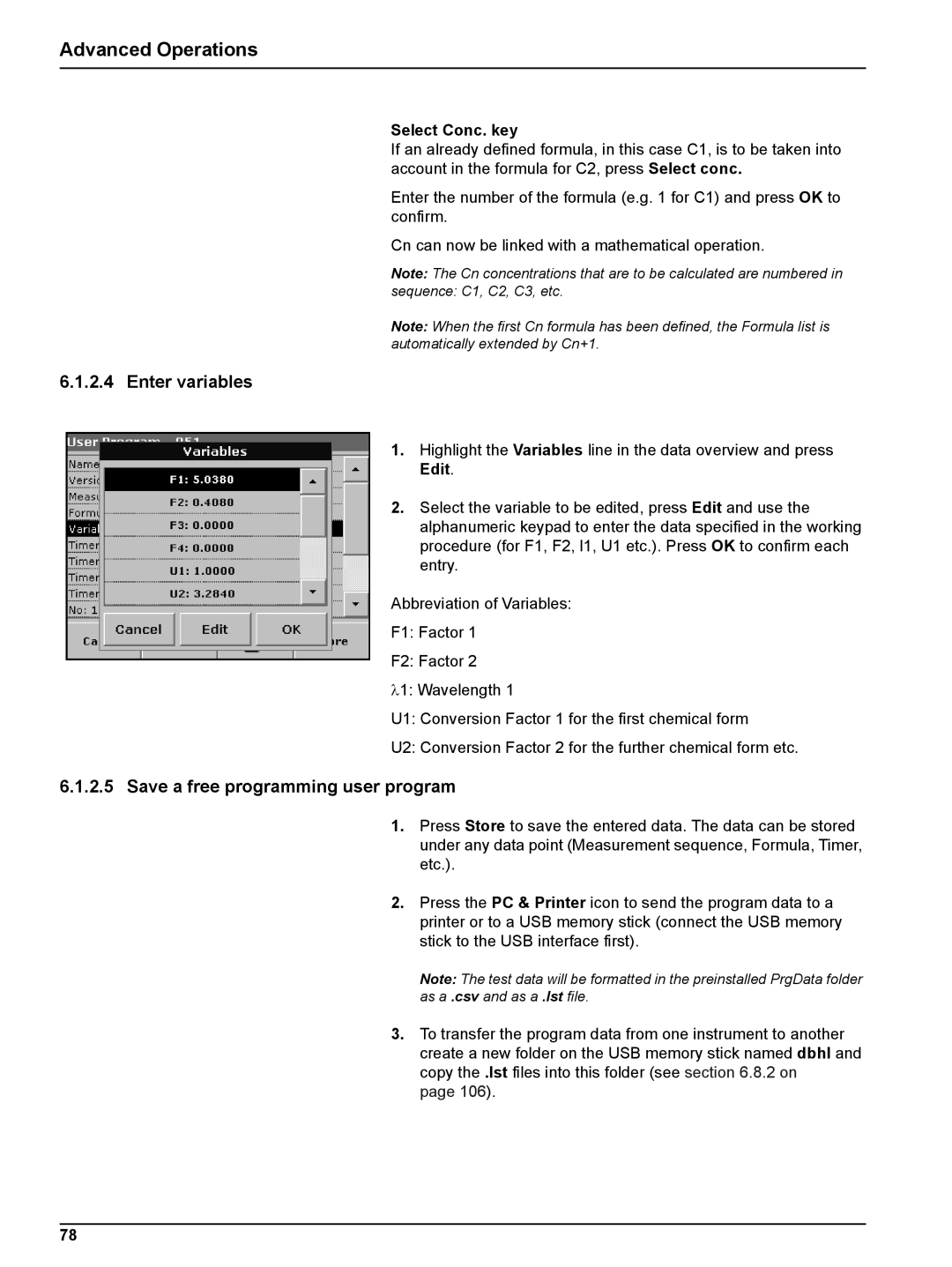
Advanced Operations
Select Conc. key
If an already defined formula, in this case C1, is to be taken into account in the formula for C2, press Select conc.
Enter the number of the formula (e.g. 1 for C1) and press OK to confirm.
Cn can now be linked with a mathematical operation.
Note: The Cn concentrations that are to be calculated are numbered in
sequence: C1, C2, C3, etc.
Note: When the first Cn formula has been defined, the Formula list is automatically extended by Cn+1.
6.1.2.4 Enter variables
1.Highlight the Variables line in the data overview and press Edit.
2.Select the variable to be edited, press Edit and use the alphanumeric keypad to enter the data specified in the working procedure (for F1, F2, l1, U1 etc.). Press OK to confirm each entry.
Abbreviation of Variables: F1: Factor 1
F2: Factor 2
λ1: Wavelength 1
U1: Conversion Factor 1 for the first chemical form
U2: Conversion Factor 2 for the further chemical form etc.
6.1.2.5Save a free programming user program
1.Press Store to save the entered data. The data can be stored under any data point (Measurement sequence, Formula, Timer, etc.).
2.Press the PC & Printer icon to send the program data to a printer or to a USB memory stick (connect the USB memory stick to the USB interface first).
Note: The test data will be formatted in the preinstalled PrgData folder as a .csv and as a .lst file.
3.To transfer the program data from one instrument to another create a new folder on the USB memory stick named dbhl and copy the .lst files into this folder (see section 6.8.2 on
page 106).
78
